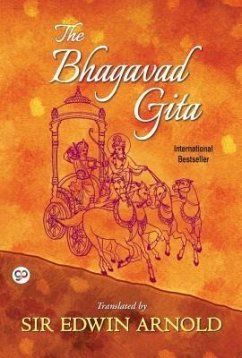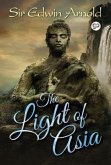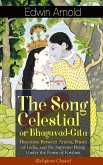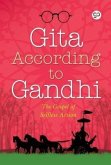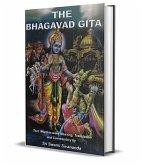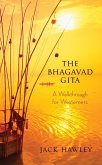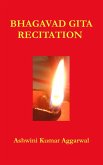The Bhagavad Gita, meaning the Song of the Lord, is in the form of a poetic dialogue between Arjuna and Krishna. It is part of the great Indian epic 'The Mahabharata', and is one of the major religious documents of the world. It reveals how human beings accumulate 'Karma' as a result of their actions in innumerable incarnations, and how to achieve liberation through devotion and knowledge.
The dialogue, which takes place on the eve of an historic battle, probes the nature of God and what man should do to reach him. As 'The Bhagavad Gita' unfolds, this majestic poem provides a fascinating synopsis of the religious thought and experience of India through the ages. This book offers the classic English verse translation by Sir Edwin Arnold (1832-1904), long admired for its evocation of the true feeling of the original poetry.
About the Author:
Sir Edwin Arnold (1832-1904), was an English author. After serving as principal of the government college in Pune, India, he joined (1861) the staff of the 'London Daily Telegraph'. He won fame for his blank-verse epic 'The Light of Asia' (1879), dealing with the life of Buddha. The poem was attacked for its alleged distortion of Buddhist doctrine and for its tolerant attitude toward a non-Christian religion. Besides other volumes of poetry, he wrote a number of picturesque travel books and translated Asian literature, inclding 'The Bhagavad Gita'.
The dialogue, which takes place on the eve of an historic battle, probes the nature of God and what man should do to reach him. As 'The Bhagavad Gita' unfolds, this majestic poem provides a fascinating synopsis of the religious thought and experience of India through the ages. This book offers the classic English verse translation by Sir Edwin Arnold (1832-1904), long admired for its evocation of the true feeling of the original poetry.
About the Author:
Sir Edwin Arnold (1832-1904), was an English author. After serving as principal of the government college in Pune, India, he joined (1861) the staff of the 'London Daily Telegraph'. He won fame for his blank-verse epic 'The Light of Asia' (1879), dealing with the life of Buddha. The poem was attacked for its alleged distortion of Buddhist doctrine and for its tolerant attitude toward a non-Christian religion. Besides other volumes of poetry, he wrote a number of picturesque travel books and translated Asian literature, inclding 'The Bhagavad Gita'.
Dieser Download kann aus rechtlichen Gründen nur mit Rechnungsadresse in A, D ausgeliefert werden.

